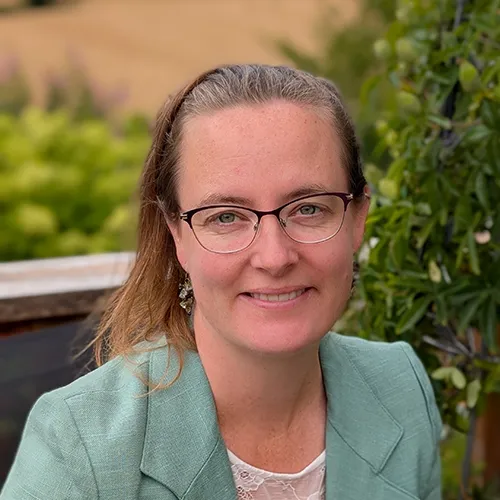Emma Bedda is a subsurface geoscientist at the British Geological Survey working in the Decarbonisation and Resource Management challenge area. Her research interests include Geodisposal: radioactive waste, Energy Storage and Tectonic Geomorphology; with a focus on subsurface geology research for application in the energy transition.
Her geological background is a BSc (hons) in Geology and Physical Geography from the University of Edinburgh. Her independent research project was on “Evidence of Tectonic Control upon the Deposition of Alluvial Fan Deposits and the Effect on the Regional Geomorphology, La Pobla de Segur, South Central Pyrenees”. Since joining the BGS she has been involved in subsurface characterisation for a range of energy storage and geodisposal applications, including hydrogen, CAES, and geodisposal of radioactive waste. She has contributed to Energy Storage by mapping Intra-Zechstein halite cycles for use in estimating potential hydrogen storage capacities. She has also been a Project Manager for a community outreach program highlighting geothermal research at BGS UKGeos site with Clyde Gateway at Cuningar Loop.
Emma is an expert power user of subsurface software packages with an extensive employment history at IHS Global supporting Kingdom software and DUG Technology supporting and developing DUG Insight. Her experience of supporting a global client base using key subsurface software, background in geology and work experience in geophysics makes her suitably placed to investigate subsurface geology for applications in the energy transition.
Emma Bedda’s biography
- 2023 to present: Subsurface geoscientist, British Geological Survey
- 2014 to 2023: Geophysical Software Specialist – DUG Insight Software, DUG Technology
- 2012 to 2014: Senior Customer Care Specialist – Kingdom Software, IHS Global
- 2003 to 2008: BSc (hons) Geology and Physical Geography, University of Edinburgh
Research interest
- Underground Hydrogen Storage – Managing the Environmental Sustainability of the Offshore Energy Transition project (MOET)
- Geodisposal: radioactive waste
Projects
- Geological site investigations for proposed GDF sites including site characterisation, seismic interpretation and depth conversion.
- MOET – To support decarbonising the UK’s economy by 2050, energy storage is a key component required to accommodate the UK’s fluctuating daily and seasonal energy supply requirements. This study seeks to understand the potential capacity for hydrogen salt cavern storage in the Southern North Sea (SNS) with particular focus on Permian halite deposits and presents maps investigating the distribution and thickness of halite units within the Zechstein Group of the SNS. This work is part of a multicentre NERC-funded project in collaboration with the National Oceanography Centre (NOC) and Plymouth Marine Laboratory (PML).
-
- Abstract: Zechstein halites as a potential hydrogen storage solution – Interim Results
- Poster: Zechstein halites as a potential hydrogen storage solution – Interim Results poster (pdf) by Bedda et al 2024
- Heat from Coalmines outreach – Project Manager of a local school and community outreach program funded by Clyde Gateway and led by BGS. Aim is to explore future energy aspirations of local schools and community. Highlighting local geothermal energy research at UKGeos, Glasgow site.
ORCID: 0009-0008-8138-3854
Published outputs
- Kingdom Software – Seismic and Geological Interpretation Software
- DUG Insight – Pre-stack Interpretation Software
- Agile Geocomputing Course – Python
- ArcGIS, QGIS and Petrel
- Public engagement
- Fellow of the Geological Society of London
- Excursions Secretary for the Edinburgh Geological Society
- Fellow of Geoscience Energy Society of Great Britain


